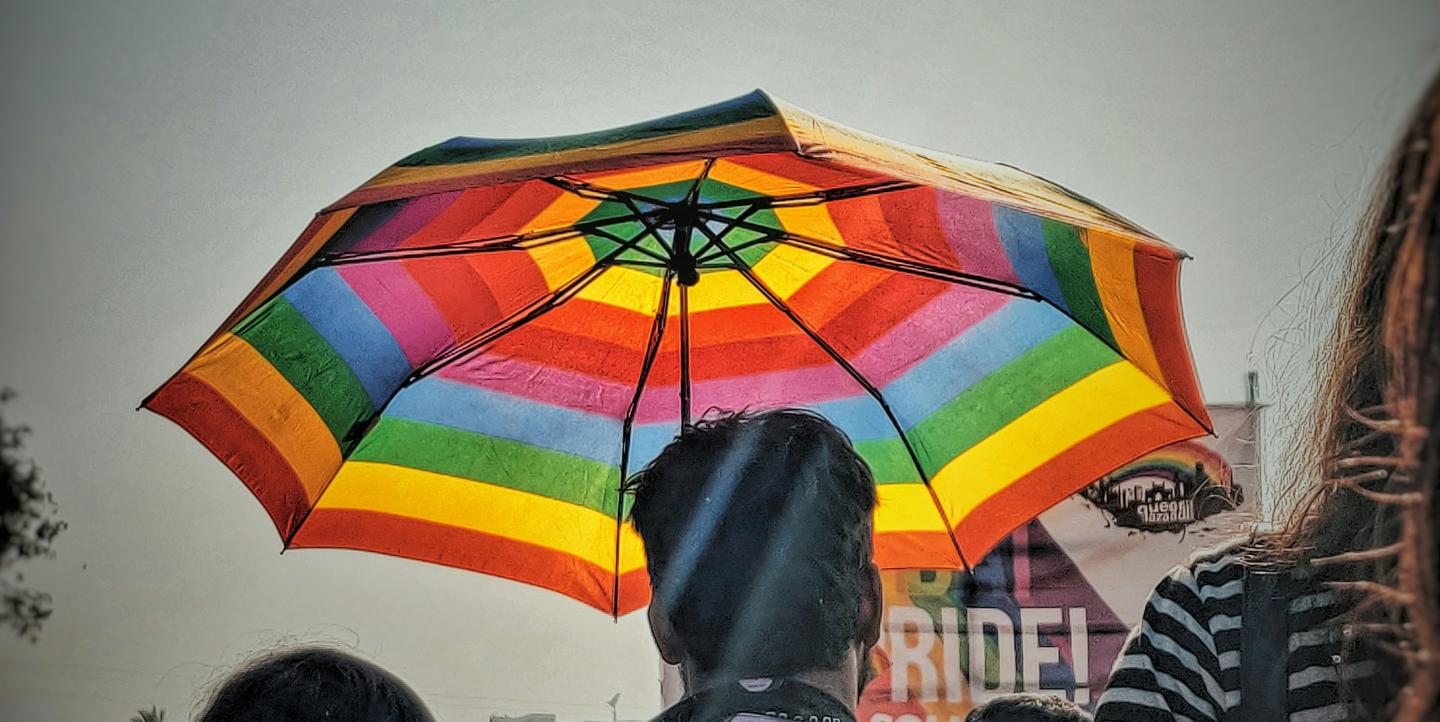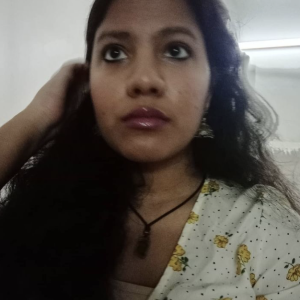When journalist Ankur Paliwal was growing up in northern India, the only headlines he came across that mentioned Indians who were queer – not heterosexual or cisgender – were focused on crime. Popular, too, were articles about members of the LBGTQ+ community eloping, which were reported on in a similar fashion to coverage of crimes.
The media, felt Paliwal, had an almost zoo-like fascination with the LGBTQ+ community and reported on it as if it was something to condemn or behold. “The language of dehumanization was so apparent. That was one thing that bothered me a lot,” he said.
As Paliwal settled into his career as a reporter, he covered issues related to science and health. Sexuality was often considered irrelevant to these stories, and Paliwal couldn’t openly draw connections to LGBTQ+ communities in his reporting without outing himself as queer. He constantly felt like he had to negotiate his identity and keep his sexuality private while on the job. “As a science journalist, I struggled to get diverse voices in my stories because scientific institutions have not been safe enough for queer people to come out,” he said.
The media industry in India has been plagued by discriminatory practices, continued Paliwal. “[Indian] media has historically been dominated by cis-heterosexual people. In leadership spaces, they decide what kind of stories are told, whose voices are uplifted, who is worthy of covering,” he said. “Because they’re not from queer communities they’re also not asking the right questions [and] not spending time with us.”
Noticing these disparities, Paliwal launched queerbeat in November 2022 to tell a greater diversity of stories about often invisibilized queer communities in India.
“I thought that the public conversation [about queer communities] needed more accurate, diverse stories,” said Paliwal. “This is the hardest thing I've ever done in my 13 years of journalism. I've never had so many sleepless nights in a year.”
Taking ownership of LGBTQ+ narratives
Based in India, queerbeat focuses exclusively on LGBTQ+ narratives in the country.
Combining a longform content with critical insight from reporters and writers who are queer themselves, the publication has reported on complex issues such as housing injustices, ethnic violence, young queer Christians revisiting their faith, and a lack of infrastructure for seniors.
“We are creating and claiming a space for our own community. I was very clear that I didn't want to do the same narratives that already exist,” said Paliwal. “We are able to tell these diverse stories because we see these stories.”
queerbeat has become more than just a platform that amplifies LGBTQ+ stories; today it is also a safe space for its contributors, who often experience unfair treatment in the workplace. Indian media outlets have been criticized for overworking and underpaying their writers, while leaving them unprotected. Often, too, journalists are unable to pursue sensitive reporting that might damage their outlet’s political or financial relations.
Independent journalist Anmol Arora experienced this firsthand. “It was difficult to sustain myself [in traditional newsrooms]. In one place I was told ‘I’m not your editor but your manager,’” said Arora. “I also didn’t feel like I could bring stories to the table that were about my community.”
Arora began freelancing with queerbeat last October and now serves as its audience engagement lead. A strong, mutual respect has sustained their appreciation for working at the digital outlet.
“Ankur [Paliwal] is an excellent leader who fosters independence, healthy collaboration, and a sense of ownership [for] all of us working with him,” they said.
Enhancing the editor-writer relationship
queerbeat prioritizes wellbeing and flexibility when working with site contributors, explained Shruti Sunderraman, the publication’s deputy editor. As they strive to ensure writer safety and story quality, editors understand that pieces may take longer for contributors to turn around.
“I had a medical emergency at home, and caregiving responsibilities meant that I would take a bit longer to meet my deadline. I was never made to feel guilty about that,” said queerbeat freelancer Chintan Girish Modi.
The outlet also requires its editors to focus on treating commissioned pieces as opportunities to build relationships with their writers rather than just focusing on getting them published, said Sunderraman.
“It is revolutionary to pay attention to [the] process and not just outcomes,” said Visvak P, a queerbeat contributing editor.
Overcoming challenges
There’s no shortage of challenges the outlet has met head on since launching. Among them, the queerbeat team has acknowledged its own shortcomings, recognizing the constant need to evolve.
“A moment of realization came [when] one writer pointed out that our masthead is made up of caste-privileged individuals,” said Paliwal. “[This] led to a lot of internal reflection and [making] some decisions to [ensure that our] leadership is as diverse as possible and to create a cross-sectional advisory board that I answer to.”
Financial sustainability has been another challenge for the newsroom. “The biggest issue [we face] is funding, and for a niche product like queerbeat it becomes even more challenging because most funders want to work with media that target a larger audience,” said Paliwal.
At the same time, ensuring that their contributors are fairly compensated for their work also impacts the publication’s sustainability. “We invest so much in each story because we also want to pay the writers, editors and illustrators we work with fairly,” said Paliwal. “I'm still trying to figure out how to continue raising funds, but the love letters and messages we receive from our readers encourage me to power through.”
Transforming journalism in India
The outcomes that queerbeat prioritizes display a commitment to transforming the unfair conditions present in Indian journalism.
Its editors, for one, are transparent about the rates they pay, which are higher than at several larger media outlets, said Modi. Copyrights stay with the outlet’s writers themselves, which is rare, according to some Indian freelancers, and queerbeat’s contributors receive mentorship throughout the editing process.
“queerbeat helped me grow as a writer. I rarely have this expectation from a publication because the news cycle is like a beast that needs to be fed and there's little time for editors to mentor,” said Modi.
With compensation above industry standards, a laser focus on amplifying underreported narratives, an internal capacity for accountability, and a mentor-mentee relationship with its writers, queerbeat has been a breath of fresh air for those involved with it.
“Affirming queer identity is central to [queerbeat’s] commissioning and editing process. I felt seen, heard [and] valued,” said Modi. “My lived experience was welcomed, and not considered an obstacle in producing journalistic work.”
The outlet is attempting not only to transform queer journalism, but how journalism on the whole is carried out. “A very good guiding pole to set for yourself is just asking the question ‘are you being helpful?’” said Paliwal.
Photo by Divya Jain on Unsplash.


